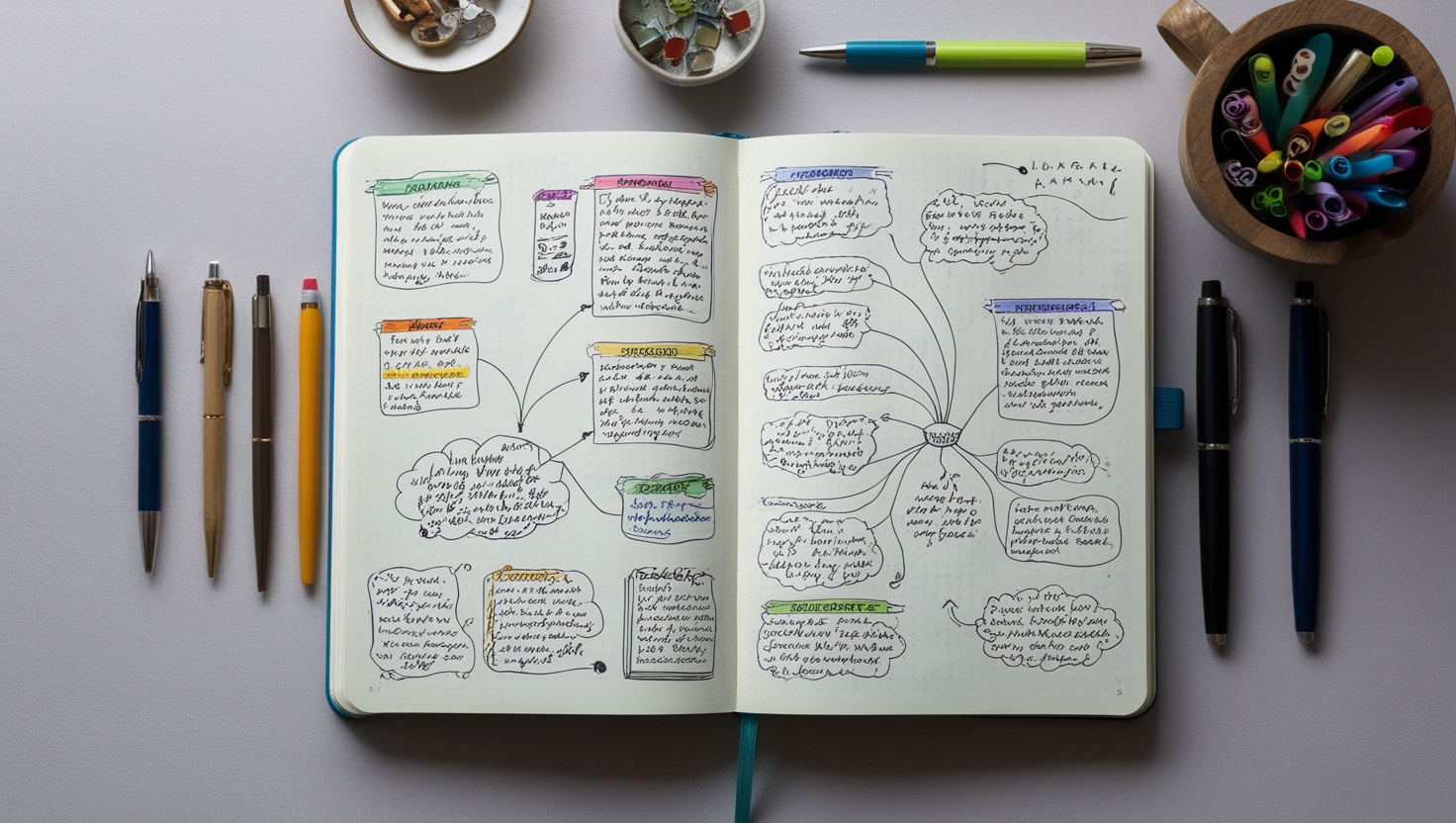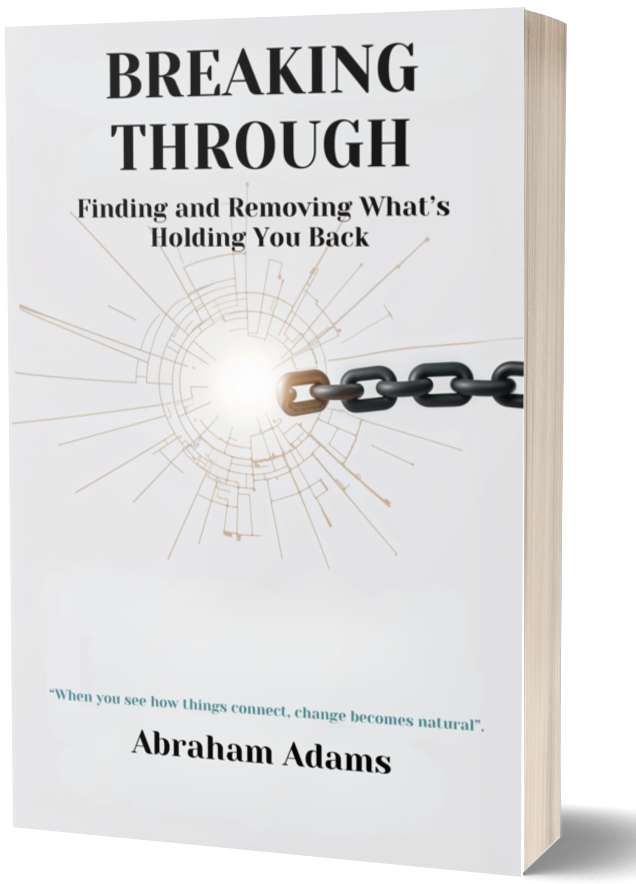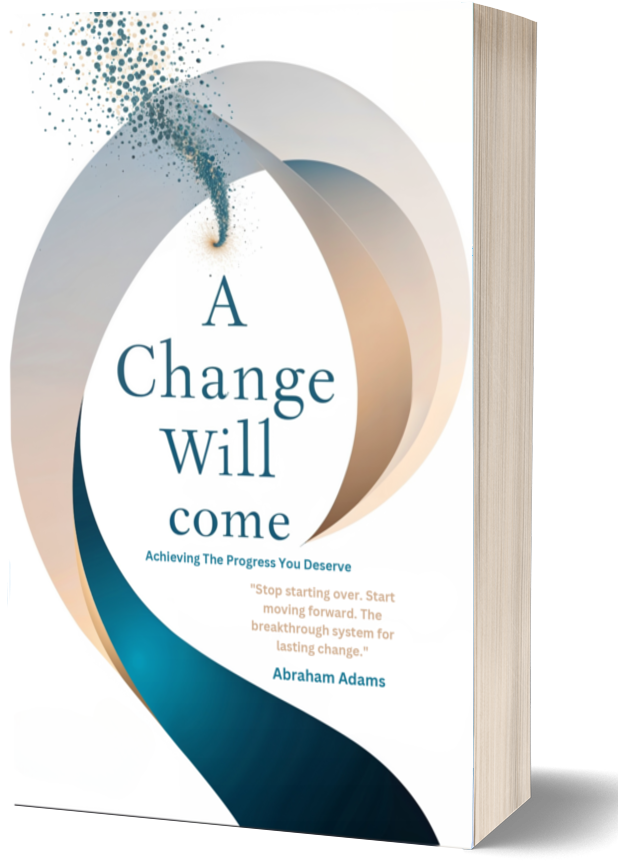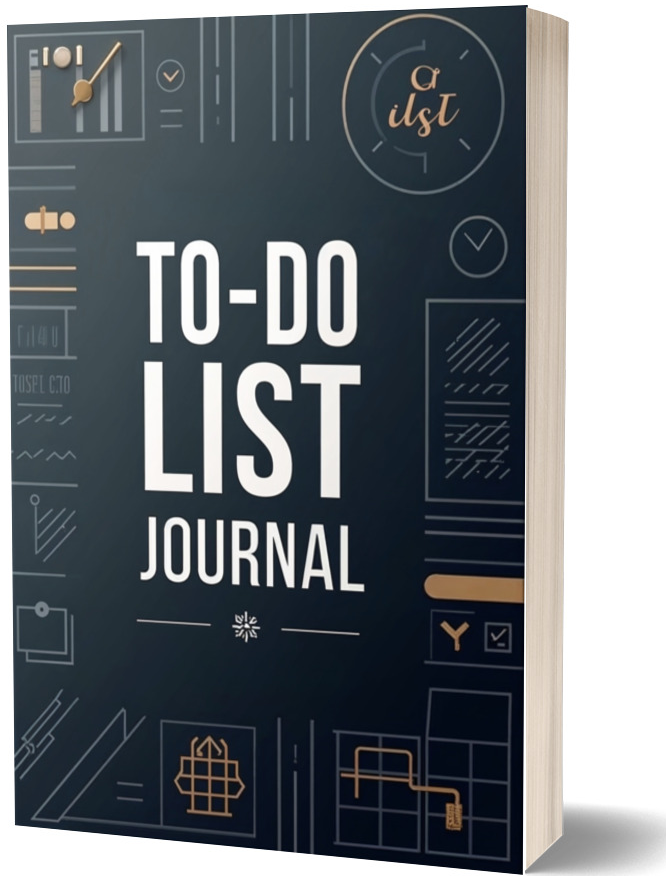Article 4: When Habits Break - The Recovery Strategies That Separate Success from Failure
Here's what nobody tells you about building habits: you will fail. You'll miss days. You'll fall off track. You'll have weeks where everything falls apart. This isn't a character flaw or lack of willpower—it's part of the process. The difference between people who succeed long-term and those who give up isn't that they never fail. It's how they handle failure when it inevitably comes.
The Perfectionist's Trap
Most people approach habits with an all-or-nothing mindset. They create elaborate routines, stick to them for a few weeks, then hit their first major obstacle. Maybe they get sick, travel for work, or face a family crisis. Their perfect streak breaks, and their inner perfectionist declares the entire effort a failure.
This black-and-white thinking is toxic to habit formation. It treats a temporary setback as a permanent character judgment. "I missed three days of exercise, so I'm not the kind of person who works out." "I ate junk food yesterday, so I've ruined my healthy eating plan."
But here's the truth: your habits aren't defined by your perfect days. They're defined by how quickly you get back on track after your imperfect ones.
The Recovery Rule: Never miss twice. Missing once is a mistake. Missing twice is the beginning of a new habit—the habit of not doing the thing you're trying to build.
Understanding the Types of Failure
Not all failures are created equal. Understanding the difference helps you respond appropriately:
The Slip: A one-time miss due to unusual circumstances. You were sick, traveling, or dealing with an emergency. These are normal and don't significantly impact habit formation.
The Slide: Missing 2-3 days in a row, often due to changing circumstances or losing motivation. This is where intervention is crucial.
The Spiral: Missing a week or more, usually accompanied by negative self-talk and the feeling that you've "ruined everything." This requires a complete reset strategy.
Each type requires a different recovery approach. Treating a slip like a spiral creates unnecessary stress, while treating a spiral like a slip ignores the need for strategic intervention.
The Bounce-Back Protocol
When you miss your habit, follow this exact sequence:
Step 1: Acknowledge Without Judgment. Notice that you missed without adding emotional drama. "I didn't meditate yesterday" is a fact. "I'm terrible at sticking to commitments" is unnecessary judgment that makes recovery harder.
Step 2: Identify the Cause. Was it a scheduling conflict, lack of energy, changed environment, or something else? Understanding why helps prevent future occurrences.
Step 3: Plan Your Return. Decide exactly when and how you'll get back on track. Be specific: "I'll do my workout tomorrow at 7 AM in my living room."
Step 4: Execute Immediately. Don't wait for motivation or the "perfect" moment. Take the smallest possible action toward your habit as soon as possible.
Create Your Recovery Plan: Before you need it, write down your bounce-back protocol for the habit you're building. What's the smallest action you can take to get back on track? Where will you do it? When will you do it? Having this planned in advance removes decision-making from an already difficult moment.
The Power of Minimum Viable Habits
One of the best recovery strategies is to have a "minimum viable" version of every habit. This is the smallest possible action that still counts as doing the habit.
If your habit is "exercise for 30 minutes," your minimum viable version might be "do 5 push-ups." If your habit is "read for 20 minutes," your minimum viable version might be "read one paragraph."
On days when doing your full habit feels impossible—you're exhausted, overwhelmed, or dealing with unexpected challenges—do the minimum viable version. This maintains the neural pathway and prevents the habit from completely breaking.
Environmental Recovery
Often, habits break because our environment changes. You had a perfect morning routine at home, but then you traveled for work. You were eating healthy when you controlled your kitchen, but then you moved in with a roommate who keeps junk food around.
Recovery requires adapting your habits to new environments rather than waiting for the "perfect" conditions to return:
Travel Strategy: Identify which habits you can maintain regardless of location and which need travel-specific versions. Maybe you can't do your full workout, but you can do bodyweight exercises in any hotel room.
Social Strategy: Plan how to maintain habits when around people who don't share them. This might mean eating before social events, finding workout partners, or simply being prepared to explain your choices without being defensive.
Stress Strategy: High-stress periods are when habits often break, but they're also when you need positive routines most. Identify which habits help you manage stress and prioritize maintaining those above others.
Flexibility Principle: Rigid habits break under pressure. Flexible habits bend and adapt. Build flexibility into your habits from the beginning by having multiple ways to fulfill them.
The Compound Recovery Effect
Here's something counterintuitive: getting better at recovering from broken habits makes you better at building habits in the first place. When you know you can bounce back from setbacks, you're more willing to start ambitious habits and less likely to give up at the first sign of difficulty.
This creates a positive cycle: you attempt more challenging habits because you trust your recovery skills, which gives you more practice with recovery, which makes you more confident about attempting even better habits.
Redefining Success
Instead of measuring success by perfect streaks, measure it by recovery speed. How quickly do you get back on track after missing? How do you treat yourself during the recovery process? Are you getting better at bouncing back?
A person who exercises 5 days a week for a year, with several breaks and recoveries, is infinitely more successful than someone who exercises every day for a month then quits entirely after their first missed day.
Track Your Recovery: Along with tracking your habit completion, track your recovery time. When you miss, how many days does it take to get back on track? Celebrate improvements in this metric as much as you celebrate consistency.
The Long-Term Perspective
Building lasting habits isn't about perfection—it's about persistence. The people who successfully transform their lives through habits aren't the ones who never fail. They're the ones who fail frequently, recover quickly, and keep going anyway.
This resilience becomes a meta-skill that extends beyond individual habits. You become someone who can start over, adapt to changing circumstances, and maintain progress despite setbacks. These qualities serve you not just in habit formation, but in every area of life where consistency matters.
In our final article, we'll explore the ultimate level of habit mastery: designing complete systems that make positive behaviors inevitable and negative behaviors nearly impossible. You'll learn how to create an environment and lifestyle where good choices become the default, effortless option.
- Audio Articles
- Audio Articles 1
- Audio Articles 2
- Audio Articles 3
- Audio Articles 4
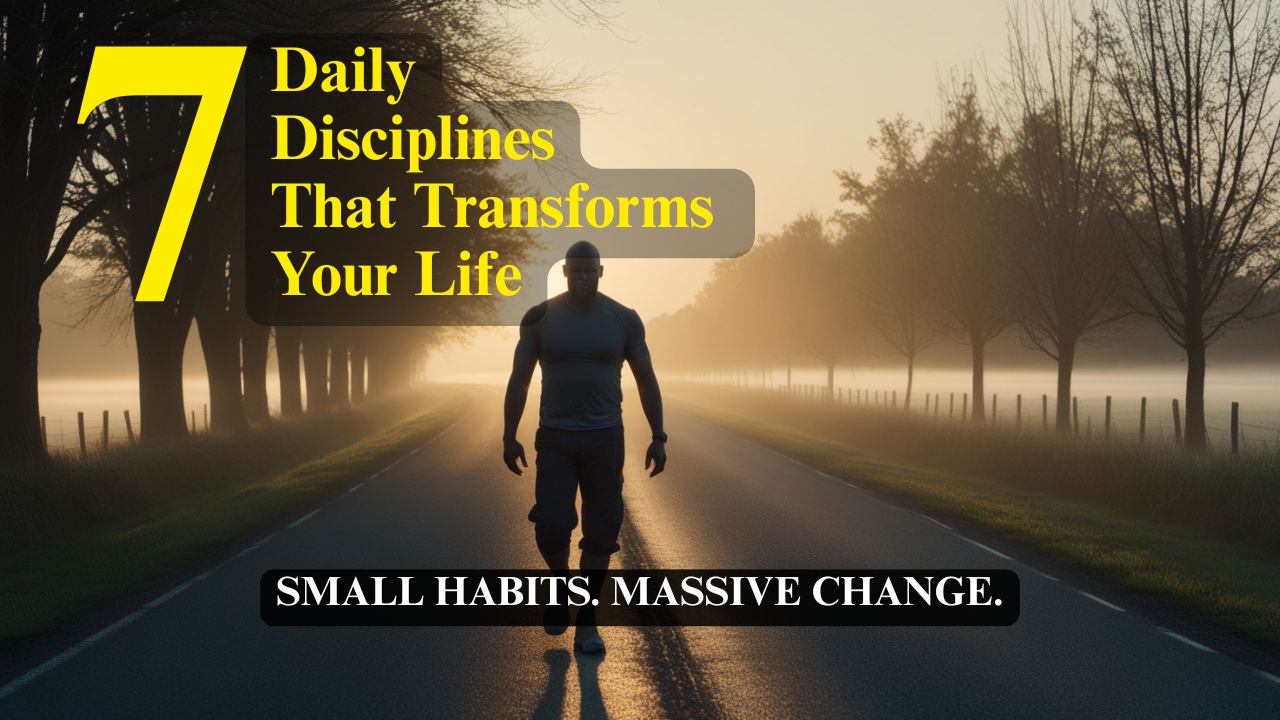
7 Daily Disciplines That Transform Your Life
The power to act with intention, to align your actions with your values, and to move steadily toward a life of purpose—even on days you don't feel like it.
Read Full Article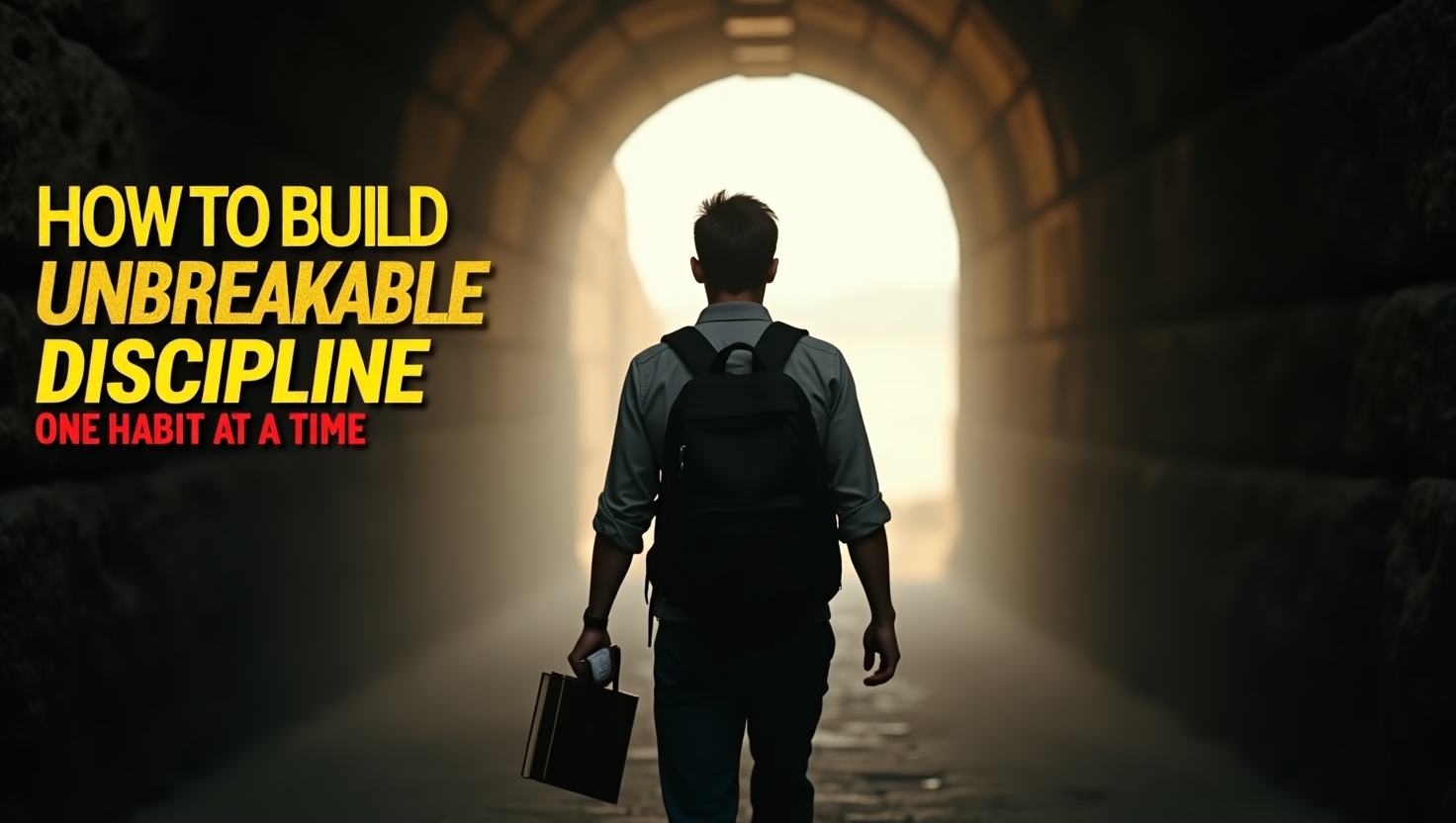
How to Build Unbreakable Discipline
Discipline is built—habit by habit, choice by choice, day by day. And the most powerful kind? The kind that doesn’t crack under pressure. The kind that becomes part of who you are.
Read Full Article
Why Motivation Fails And Discipline Wins Every Time
We all love the feeling of motivation—that surge of energy, that rush of inspiration that makes everything seem possible. But here’s the problem: motivation is unreliable. It’s emotional. It comes and goes. And if your goals rely on you “feeling like it,” you’re already in trouble.
Read Full Article
Discipline Over Desire
Desire is loud. It burns bright, talks fast, and loves to dream. But desire alone doesn't achieve much. Every person has desires. Very few have the discipline to bring them to life.
Read Full Article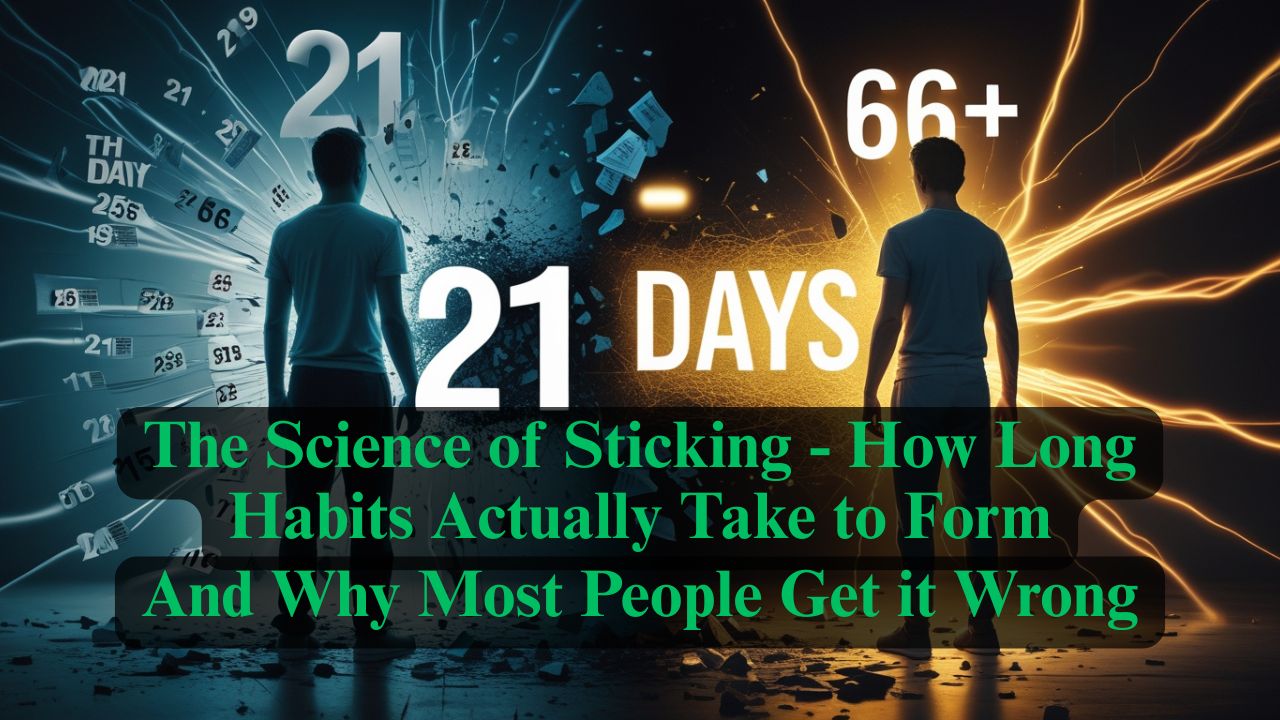
The Science of Sticking
If you've ever tried to build a new habit, you've probably heard that it takes 21 days. This number gets thrown around so often that it feels like scientific fact.
Read Full Article
The Stacking Strategy
What if I told you that the habits you already have—even the ones you consider "bad"—could become the secret weapons for building the habits you want?
Read Full Article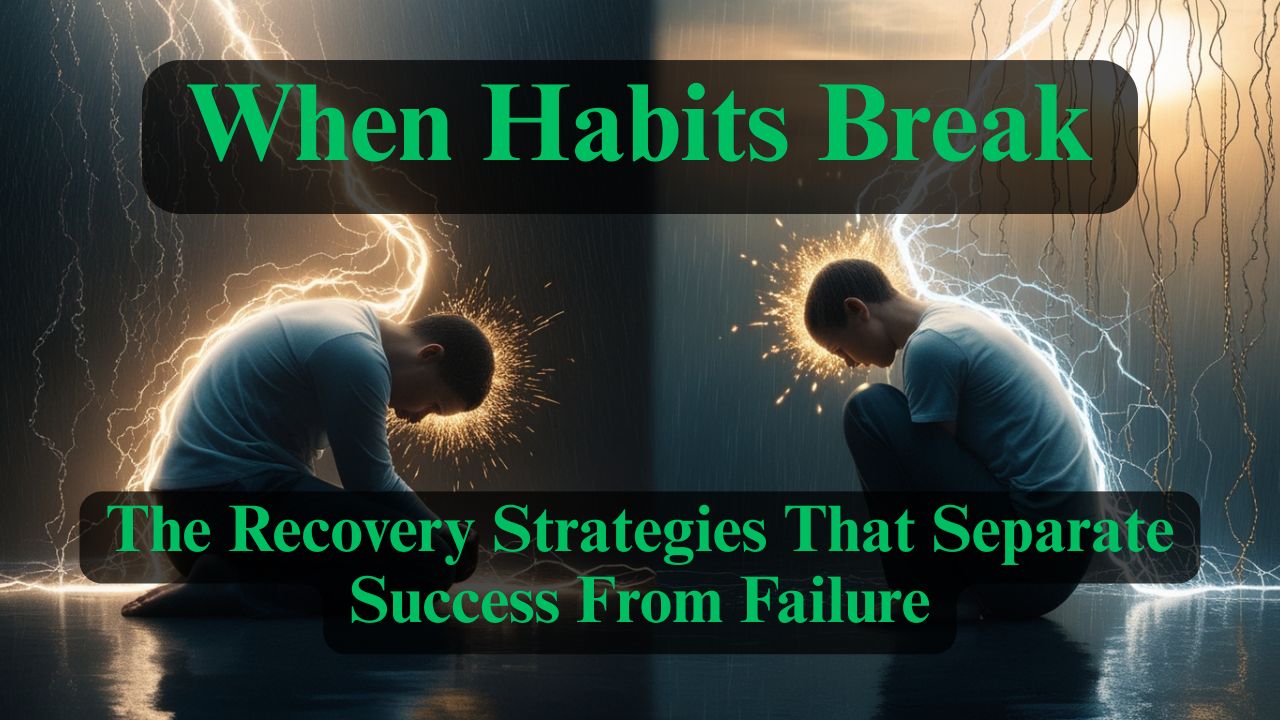
When Habits Fail - The Recovery Strategies That Separate Success From Failure
Here's what nobody tells you about building habits: you will fail. You'll miss days. You'll fall off track. You'll have weeks where everything falls apart.
Read Full Article
The Ultimate System - Designing a Life Where Good Habits Are Inevitable
You've learned to recognize habits, understand their formation timeline, stack them strategically, and recover from setbacks.
Read Full Article
